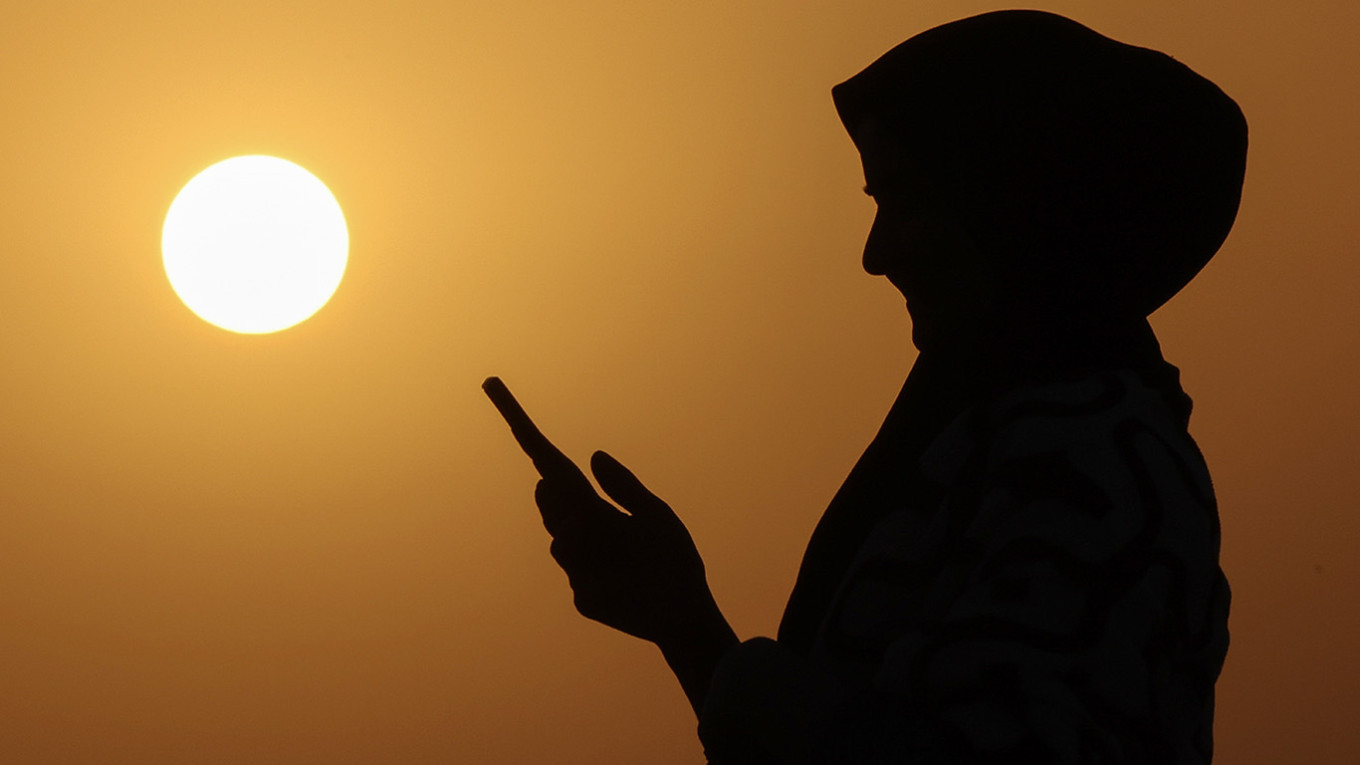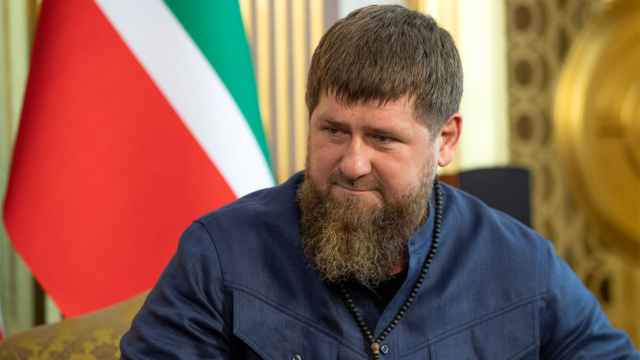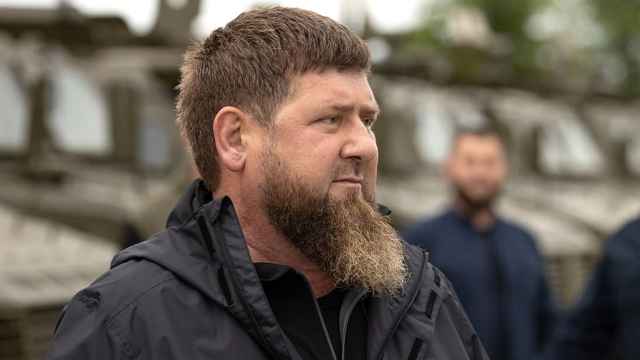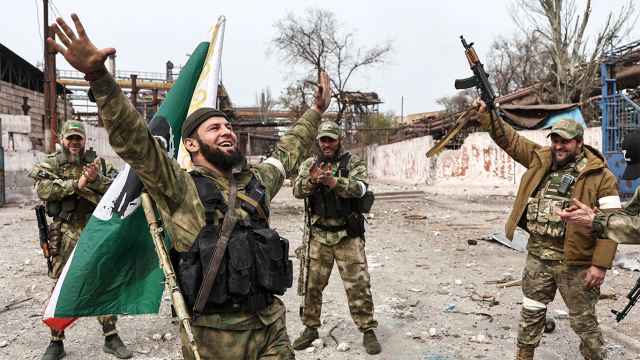The rights of pro-Ukrainian Chechen refugees and asylum seekers in Europe — including those of pro-Ukrainian Chechen activists — are under attack. European authorities have largely failed to acknowledge that modern-day Chechnya, under Russian control, has become an Orwellian nightmare, where individuals can disappear without a trace for as little as a family member criticizing the Kremlin or local authorities.
Despite the ongoing Russian-Ukrainian war, several European countries continue to deport Chechen asylum seekers back to Chechnya, where they face torture, humiliation and death.
On April 9, the Estonian Court of Appeal refused to grant asylum status to Maryat Batalova, a 64-year-old Chechen woman, ruling that she faced “no serious or real threat” at home. The case was so outrageous that it gained the attention of independent Russian-language media, such as Vot Tak and The Insider.
Her story is not just about one individual. It sheds light on the broader human rights violations endured by Chechen refugees in the European Union as they try to escape the brutality of Russian rule in Chechnya.
Like many Chechens who remember the horrors of the Russian-Chechen wars, Batalova opposed Russia’s war in Ukraine. In her interview with Vot Tak, she recounted how her ordeal began after she spoke up against the war at the funeral of a young Chechen man who had been sent to fight in Ukraine.
“Why do you allow them to be sent to war?” she asked her neighbors. “And how are your sons fighting in Ukraine any better than the Russian soldiers who came to kill us during the two [Russian-Chechen] wars?”
A few days later, she was abducted by security forces. She was beaten with polypropylene pipes, tortured with a soldering iron and electric shocks and threatened with rape using a bottle. She lost consciousness during the abuse and was only released after her relatives paid a bribe of 350,000 rubles ($4,500).
To save her life, Maryat applied for political asylum in Estonia. However, her application was denied in January and her appeal has now been rejected.
Authorities deemed her story unsubstantiated, with the court questioning whether a single anti-war comment could have provoked “such a violent response from Chechen authorities.”
Batalova has been banned from entering the Schengen zone for three years and ordered to leave Estonia for a third country.
This decision is particularly disturbing given the well-documented brutality of Russia’s rule in Chechnya. Unfortunately, this is not an isolated case.
“We are witnessing an alarming trend: Chechens are being deported from Europe despite their open support for Ukraine and clear opposition to the Russian regime,” Amina Larsson, a lawyer from the Chechen human rights organization Vayfond told The Moscow Times. “Many of them have participated in anti-war demonstrations, publicly expressed pro-Ukrainian views, and actively distanced themselves from Putin’s policies — yet migration authorities often disregard these factors entirely.”
Vayfond has handled dozens of cases involving Chechen refugees and asylum seekers in countries including Austria, Poland, France, Germany, Sweden, Croatia and Estonia.
Some deportations have already been carried out. Others are imminent, with people living in constant fear, having already received asylum rejections and being placed under deportation procedures. Larson says this is happening in the shadow of increasing prejudice and distrust toward Chechens, making it extraordinarily difficult for them to obtain protection in Europe.
“This reflects a broader failure of the asylum system — one that overlooks political dissent, ignores real threats of persecution, and risks sending people back to a regime they openly oppose,” she said.
As a Ukrainian journalist and activist who has worked with the anti-Kremlin opposition from St. Petersburg and Moscow — mostly white, Slavic Russians — I have watched many of them seek asylum in Europe. Yet I have never seen any of them face the kind of injustice that my Chechen colleagues and friends endure. This is despite the fact that many Chechens have taken even stronger pro-Ukrainian stances and face far greater risks, including retaliation against their families.
One of my Chechen activist friends, whose name I have withheld for security reasons, commented on Telegram that Ramzan Kadyrov was an occupier, not the legitimate leader of Chechnya. After this, his family and friends back in Chechnya were harassed and threatened. People connected to local authorities demanded to know when he would be back home to punish him.
Nearly a year ago, he faced the risk of deportation from Germany to Russia, despite actively contributing to pro-Ukrainian causes. His case, like many others, was almost dismissed by the German migration system.
“There’s a deep prejudice toward Chechens in Germany,” he told me. “European authorities behaved like it was us who attacked Ukraine. We all remember how the late Pope said that Chechens and Buryats, not Russians, committed atrocities in Ukraine. Many outlets shared these comments. Although Chechens started to support Ukraine en masse, Germany continued to deport Chechen refugees and asylum seekers. I wasn’t a big activist or a particularly prominent person. But I, as any decent person, openly took the Ukrainian side in the Russian-Ukrainian war.”
The activist said that German authorities refused to believe that the authorities in Chechnya had threatened to kill him. He believes that if he were deported to Russia, he would be tortured and blackmailed into signing a contract to fight in the war in Ukraine.
European authorities continue to ignore these realities, treating Chechnya as just another part of Russia. Worse, they allow Russia to weaponize institutions like Interpol to target political opponents, including those who have direct ties to Ukraine.
Two notable cases stand out.
The first one is Amina Gerihanova, a Chechen woman who fled Ukraine with her son in 2022, was imprisoned at the Romanian border after Russia falsely accused her of terrorism and separated her from her child. Despite Ukrainian authorities confirming her innocence, Romania trusted the Kremlin. She was freed only after widespread protests of the Chechen diaspora in Europe.
The second is Muslim Madiev, one of the leaders of the pro-Ukrainian Chechen Dzokhar Dudayev battalion, who was listed by Russia as a terrorist through Interpol. His case was only reconsidered after protests in front of Interpol’s headquarters in Lyon.
Many Chechens have had to flee their homeland because of their support of Ukraine. They are also putting themselves and their families at risk by continuing their activism in Europe, trusting that the European countries would protect them. But Europe has repeatedly failed to do that.
European authorities must abandon Russian propaganda and Islamophobic stereotypes. Targeting Chechen activists shows that they are ready to abandon the victims of Russian aggression. The European authorities who claim to support Ukraine should see that Chechen refugees are not a threat, but a potential ally. Or, at very least, the European Union must follow its own declared European values of justice, equality and human rights.
A Message from The Moscow Times:
Dear readers,
We are facing unprecedented challenges. Russia's Prosecutor General's Office has designated The Moscow Times as an "undesirable" organization, criminalizing our work and putting our staff at risk of prosecution. This follows our earlier unjust labeling as a "foreign agent."
These actions are direct attempts to silence independent journalism in Russia. The authorities claim our work "discredits the decisions of the Russian leadership." We see things differently: we strive to provide accurate, unbiased reporting on Russia.
We, the journalists of The Moscow Times, refuse to be silenced. But to continue our work, we need your help.
Your support, no matter how small, makes a world of difference. If you can, please support us monthly starting from just $2. It's quick to set up, and every contribution makes a significant impact.
By supporting The Moscow Times, you're defending open, independent journalism in the face of repression. Thank you for standing with us.
Remind me later.






